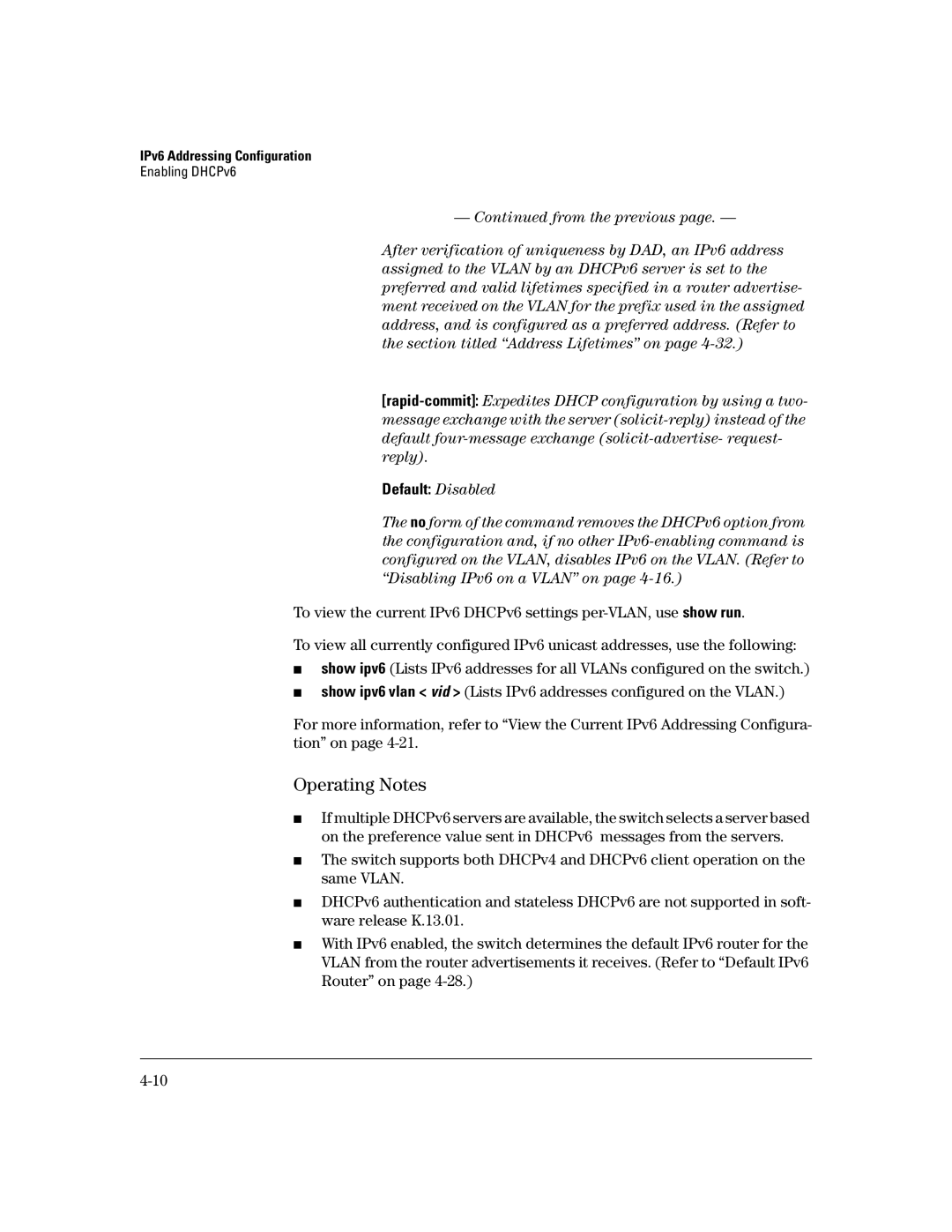IPv6 Addressing Configuration
Enabling DHCPv6
— Continued from the previous page. —
After verification of uniqueness by DAD, an IPv6 address assigned to the VLAN by an DHCPv6 server is set to the preferred and valid lifetimes specified in a router advertise- ment received on the VLAN for the prefix used in the assigned address, and is configured as a preferred address. (Refer to the section titled “Address Lifetimes” on page
Default: Disabled
The no form of the command removes the DHCPv6 option from the configuration and, if no other
To view the current IPv6 DHCPv6 settings
To view all currently configured IPv6 unicast addresses, use the following:
■show ipv6 (Lists IPv6 addresses for all VLANs configured on the switch.)
■show ipv6 vlan < vid > (Lists IPv6 addresses configured on the VLAN.)
For more information, refer to “View the Current IPv6 Addressing Configura- tion” on page
Operating Notes
■If multiple DHCPv6 servers are available, the switch selects a server based on the preference value sent in DHCPv6 messages from the servers.
■The switch supports both DHCPv4 and DHCPv6 client operation on the same VLAN.
■DHCPv6 authentication and stateless DHCPv6 are not supported in soft- ware release K.13.01.
■With IPv6 enabled, the switch determines the default IPv6 router for the VLAN from the router advertisements it receives. (Refer to “Default IPv6 Router” on page
